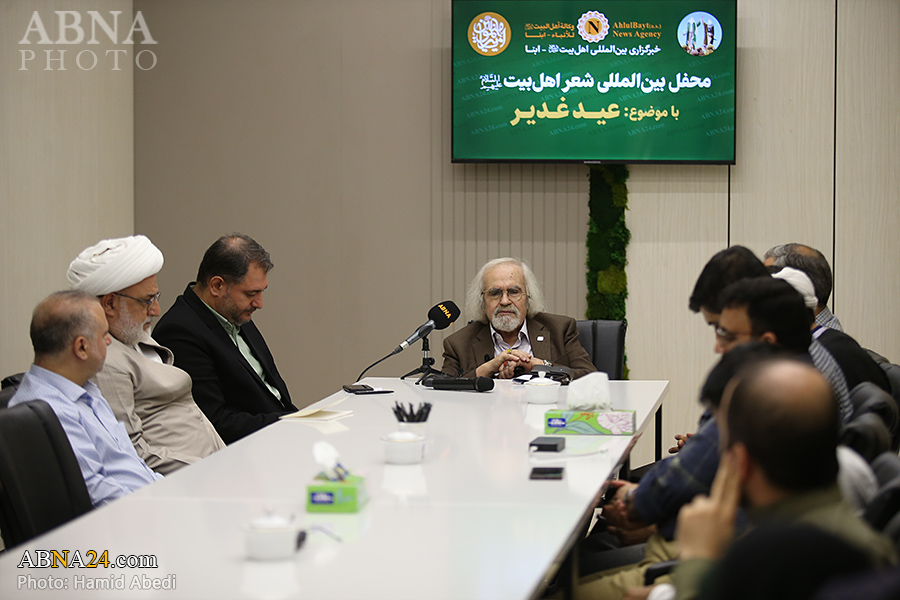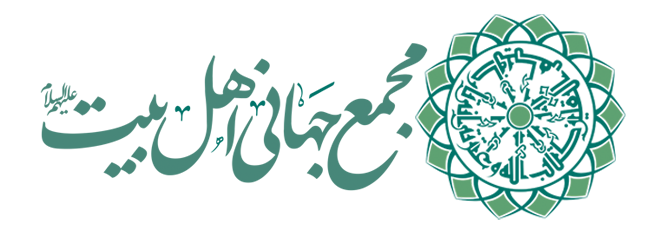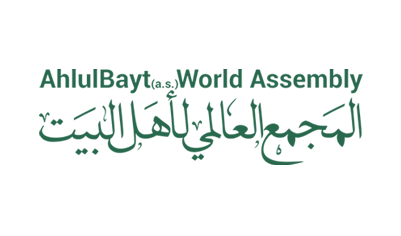International session of AhlulBayt (a.s.) poetry, ABNA News Agency
The father of Iranian religious poetry stated, “Today, we see that the state of religious poetry in the country has grown a lot after the victory of the Islamic Revolution, compared to the Pahlavi era. Today, after more than four decades, that sapling of religious poetry has turned into a stout tree.”
ABWA Official Website – On Wednesday evening, June 26, 2024, the international session of AhlulBayt (a.s.) poetry was held by AhlulBayt (a.s.) International News Agency - ABNA, with the theme of Eid Ghadir, in the meeting hall of the news agency, with the presence of Mohammad Ali Mujahidi, the father of Iranian religious poetry, and a group of religious poets from Iran, India, Pakistan, and Syria.

Razia Jabbadari was the secretary of this session and poets including Sayed Ahmad Hosseini, Fatima Rashidi, Yusuf Sonduq from Syria, Siddiqa Sadat Alavi, Mohammad Hossein Mahdavian, Sheikh Abdullah Asad from Syria, Tahira Sadat Maliki, Abbas Thaqib from Pakistan, Hojat al-Islam Mohammad Mahdi Khan Mohammadi read his poems written in different languages, Persian, Arabic and Urdu.
History of Alavi poetry in history
In this session, Mohammad Ali Mujahidi, the father of religious poetry of Iran, pointed out the importance of Ghadir Eid and said, “Ghadir is the greatest Eid. Monotheism comes from the path of Wilayat, and monotheism that is from this path will not go astray.”
“The history of Alavi poetry goes back to the 4th Hijri century,” he added, “In the first three Hijri centuries, due to the terror against the Shiites, no one dared to say that he was a follower of the AhlulBayt (a.s.). Until history turned and Ahmad Bin Buya Deilmi gained control over a part of Iraq and the southern regions of Iran in 320 Hijri. As soon as he could, he issued a charter that paved the way for Islam. According to this charter, from Ashura of the year 320 Hijri, public mourning ceremonies was held for the martyrs of Karbala and the markets were closed in this day.”
The father of Iranian religious poetry, stating that Qom had about 40 Shiite poets in the first three Hijri centuries, who wrote poetry in Persian and Arabic languages, said, “Of course, due to the pressure of the governments in those centuries, nothing of their poems has reached us. For example, there was a poet named Abu Attar Qomi, who wrote poetry in Persian and Arabic languages. His Persian poems were superior to Rudaki's poems, and his Arabic poems were also good. But now there is no trace of Abu Attar Qomi’s poems. But Buyids charter untied the knot and since then, Shiite poets emerged.”
The growth of religious poetry after the victory of the Iranian Islamic Revolution
Further, referring to the extensive growth of religious poetry after the victory of the Islamic Revolution, Mujahidi said, “Today, we see that the state of religious poetry in the country has grown a lot after the victory of the Islamic Revolution, compared to the Pahlavi era. Today, after more than four decades, that sapling of religious poetry has turned into a stout tree. I used to participate in poetry forums during the Pahlavi era. In those days, if someone wanted to read religious poetry, people frowned upon him. Because first of all, the atmosphere of those forums was not suitable for such poems; Secondly, the religious poems in that period were weak and without stylistic devices.”
“But today, we see young poets have poems on subjects, whose absence was felt in Persian poetry. I thank God that I have played a small role in the flourishing of the stout tree of religious poetry, and I am happy that those efforts and sympathies have paid off,” he continued.
Addressing the young religious poets, at the end of his speech he said, “Do not doubt that the path you have chosen is pleasing to God and the saints.”
At the end of the program, Hassan Sadraei Aref, head of AhlulBayt (a.s.) International News Agency, expressing appreciation for the religious poets for their presence at the news agency, emphasized ABNA’s readiness to host the next gatherings of religious poets.
**************
End/ 345
The father of Iranian religious poetry stated, “Today, we see that the state of religious poetry in the country has grown a lot after the victory of the Islamic Revolution, compared to the Pahlavi era. Today, after more than four decades, that sapling of religious poetry has turned into a stout tree.”
ABWA Official Website – On Wednesday evening, June 26, 2024, the international session of AhlulBayt (a.s.) poetry was held by AhlulBayt (a.s.) International News Agency - ABNA, with the theme of Eid Ghadir, in the meeting hall of the news agency, with the presence of Mohammad Ali Mujahidi, the father of Iranian religious poetry, and a group of religious poets from Iran, India, Pakistan, and Syria.

Razia Jabbadari was the secretary of this session and poets including Sayed Ahmad Hosseini, Fatima Rashidi, Yusuf Sonduq from Syria, Siddiqa Sadat Alavi, Mohammad Hossein Mahdavian, Sheikh Abdullah Asad from Syria, Tahira Sadat Maliki, Abbas Thaqib from Pakistan, Hojat al-Islam Mohammad Mahdi Khan Mohammadi read his poems written in different languages, Persian, Arabic and Urdu.
History of Alavi poetry in history
In this session, Mohammad Ali Mujahidi, the father of religious poetry of Iran, pointed out the importance of Ghadir Eid and said, “Ghadir is the greatest Eid. Monotheism comes from the path of Wilayat, and monotheism that is from this path will not go astray.”
“The history of Alavi poetry goes back to the 4th Hijri century,” he added, “In the first three Hijri centuries, due to the terror against the Shiites, no one dared to say that he was a follower of the AhlulBayt (a.s.). Until history turned and Ahmad Bin Buya Deilmi gained control over a part of Iraq and the southern regions of Iran in 320 Hijri. As soon as he could, he issued a charter that paved the way for Islam. According to this charter, from Ashura of the year 320 Hijri, public mourning ceremonies was held for the martyrs of Karbala and the markets were closed in this day.”
The father of Iranian religious poetry, stating that Qom had about 40 Shiite poets in the first three Hijri centuries, who wrote poetry in Persian and Arabic languages, said, “Of course, due to the pressure of the governments in those centuries, nothing of their poems has reached us. For example, there was a poet named Abu Attar Qomi, who wrote poetry in Persian and Arabic languages. His Persian poems were superior to Rudaki's poems, and his Arabic poems were also good. But now there is no trace of Abu Attar Qomi’s poems. But Buyids charter untied the knot and since then, Shiite poets emerged.”
The growth of religious poetry after the victory of the Iranian Islamic Revolution
Further, referring to the extensive growth of religious poetry after the victory of the Islamic Revolution, Mujahidi said, “Today, we see that the state of religious poetry in the country has grown a lot after the victory of the Islamic Revolution, compared to the Pahlavi era. Today, after more than four decades, that sapling of religious poetry has turned into a stout tree. I used to participate in poetry forums during the Pahlavi era. In those days, if someone wanted to read religious poetry, people frowned upon him. Because first of all, the atmosphere of those forums was not suitable for such poems; Secondly, the religious poems in that period were weak and without stylistic devices.”
“But today, we see young poets have poems on subjects, whose absence was felt in Persian poetry. I thank God that I have played a small role in the flourishing of the stout tree of religious poetry, and I am happy that those efforts and sympathies have paid off,” he continued.
Addressing the young religious poets, at the end of his speech he said, “Do not doubt that the path you have chosen is pleasing to God and the saints.”
At the end of the program, Hassan Sadraei Aref, head of AhlulBayt (a.s.) International News Agency, expressing appreciation for the religious poets for their presence at the news agency, emphasized ABNA’s readiness to host the next gatherings of religious poets.
**************
End/ 345





